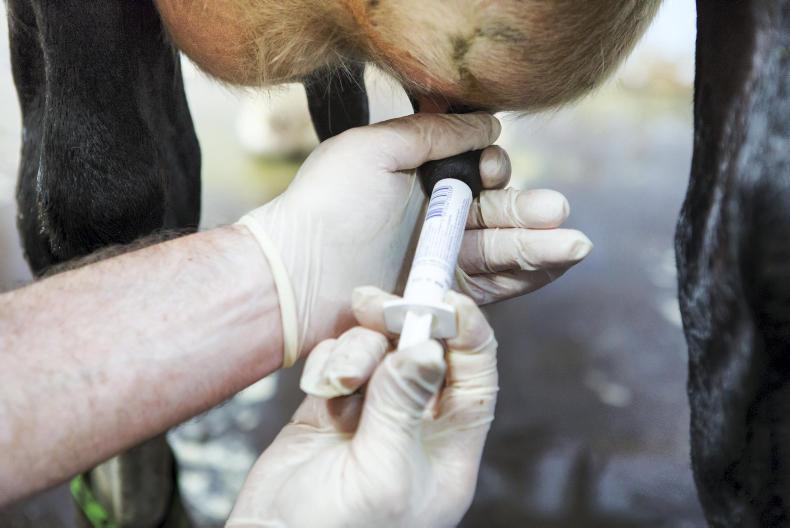Thomas Jefferson coined the phrase “all men are created equal” in the United States declaration of independence in 1776.
While this adage still holds true, it could not be further from the truth when applied to cows and their dry periods.
The dry period is an ideal opportunity to allow some cows to catch up with their comrades and start the next lactation on a par with their herdmates.
The most obvious aim of the dry period is to eliminate any infections present in the udder and to prevent any new ones in the dry period.
If you avail of milk recording, this is an ideal time to make use of its information and potentially turn high-SCC cows into more profitable cows next lactation. It is best to chat to your vet and possibly take milk samples for culture and sensitivity to help achieve this.
Selective dry cow therapy is mentioned more and more when discussing dry cow treatments. This is only suited to herds with full milk recording records, clinical mastitis records and a bulk tank average herd SCC under 200,000. Blanket treatment is recommended for all other herds.
The use of teat sealants is a very worthwhile investment as the udder is between five and seven times more at risk of infection during the early and late dry periods than during lactation.
As the udder is so prone to infection at these times, coupled with the fact that you won’t be handling the udders daily in the parlour, it is very important to check all cows for any breakdowns of the teat sealants or any visible swelling, especially at the start and end of the dry period. Keeping the cubicle beds clean and dry is also of utmost importance.
In a lot of herds, the expected calving date of the cow influences the drying-off date of the cow.
Another opportunity the dry period presents is the chance to allow a cow with sub-optimal BCS (<2.75) a longer dry period where she is possibly supplemented with extra feed to allow her reach the desired BCS score of 3.
There is always work to be done on any farm, but the dry period really does afford us the chance to influence the cow’s profitability, so taking the time to analyse your cow’s milk records and BCS is a worthwhile task that can certainly have a positive impact on the next lactation.
Tadhg Bourke works at Glenbower Veterinary Group, Killeagh, Co. Cork. Glenbower Veterinary Group is part of XLVets. XLVets is a group of progressive practices who are working together to achieve a better future for agriculture and veterinary in Ireland. For information, see www.xlvets.ie






 This is a subscriber-only article
This is a subscriber-only article










SHARING OPTIONS: